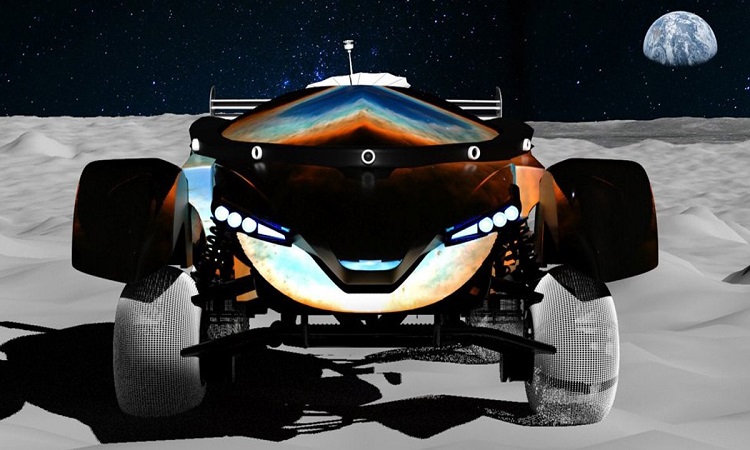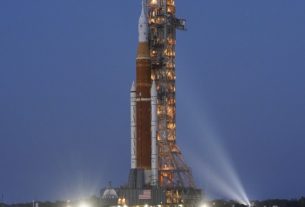Moon Mark, in collaboration with Intuitive Machines, will feature a remote control car race in October 2021 on the Moon. An ambitious project which aims to involve the young generation in the design of new space technologies.
Yes, you heard that right, small remote control cars are scheduled to race on the moon as early as next year. This crazy project is brought to us by Moon Mark, a start-up founded in 2018 whose goal is to “create experiences and content to inspire and engage as many people as possible on Earth and in space.”
Concretely, at the end of a competition involving six teams of high school students selected from across the United States, who will participate in a series of technical challenges (drone racing, autonomous vehicles, e-gaming, in particular), the two best teams will win a unique opportunity to build and pilot two vehicles on the moon.
As part of this project, Moon Mark must collaborate with the company Intuitive Machines, whose lander, capped atop a Falcon 9 rocket, will take off in October 2021 to land a few days later in the Ocean of Storms, near the Schröter Valley. Here, Intuitive Machines must deliver a hundred kilograms of payloads in order to explore the region. The two small vehicles will therefore act as a secondary load.
Once released, the two remote-controlled cars will connect via wifi to the alunisseur, which will then relay the information to Earth, and vice versa.
Lots of questions
Many questions then arise. How do you actually order each vehicle? Given the Earth-Moon distance, when these children push their analog joystick, their cars will receive and operate the controls with a lag of approximately 1.3 seconds. It will then take that long to see whether or not everything went as planned. It is therefore difficult to imagine a good running behavior in these conditions, especially since it will aim to “test the speed limits on the lunar surface”, explains Mary Hagy, founder and CEO of Moon Mark, interviewed by New Atlas.
Another point: there is a priori no question of sending a robot to trace the trail to follow. Also, it seems more likely that the limits not to be exceeded are defined by pre-planned coordinates. All we know is that this track is currently designed by Hermann Tilke, who is behind all recent Formula 1 circuits.
For their part, the two small cars will be partially designed by high school students, accompanied by McLaren P1 designer Frank Stephenson. Each will weigh approximately 2.5 kg. This will involve taking into consideration many factors, such as dust filtration, traction, weight, material, endurance or stability issues, all while giving their car a “nice look”.
An overpriced operation
Finally on the financing side, again, two questions arise. The first: how much will this operation cost? Knowing that each vehicle will weigh about 2.5 kilograms and that the deployment mechanism used to drop them onto the lunar surface will weigh about three extra kilograms, so we get a combined weight of about eight kilograms. However, each kilogram of a payload is very expensive. The exact pricing offered by Intuitive Machines is not known, but for comparison, it will cost you US $ 1.2 million per kilogram with private company Astrobotic to integrate one of its Peregrine landing modules.
The second: What will be the financial benefits? Then again, it’s a bit of a blur, but Moon Mark is planning a live-broadcast entertainment event.




